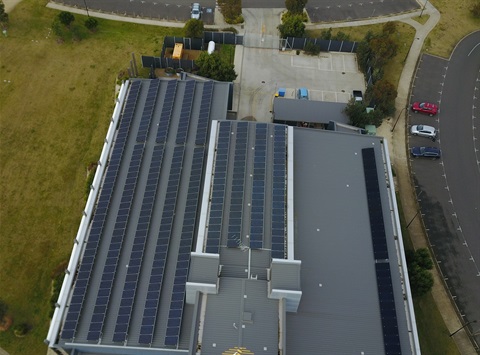
Surf Coast Shire Council has drawn a line in the sand on its corporate greenhouse gas emissions, setting 30 June 2030 as target for zero from all operations excluding Anglesea landfill.
Council resolved at its 26 April meeting to update its existing Climate Emergency Corporate Response Plan to lock in the goal date and a roadmap to guide the emissions reduction process.
“These actions will build on significant steps we have already taken on corporate emissions, including installation of extensive rooftop solar systems with battery storage at Council facilities, purchase of 100 per cent renewable electricity for all Council facilities and street lights, and achieving carbon neutrality by offsetting all our emissions,” Mayor Libby Stapleton said.
The 2030 target is in line with International Panel on Climate Change statements that deep cuts in emissions are required within this decade if global temperatures are to remain well below two degrees Celsius.
“Council is proud and excited to be setting this target and in doing so strengthening our commitment to targeted actions as part of our Climate Emergency response,” Cr Stapleton said.
“We are moving away from use of gas at facilities by doing things like replacing gas hot water with electric systems powered by renewables, and we have started transitioning our fleet to electric and hybrid vehicles.
“All of Council’s light vehicles are scheduled to be electric by 2028 and we are targeting 2030 for the remainder including trucks and excavators.
“Our roadmap commits us to reducing corporate greenhouse gas emissions by 1500 tonnes a year by 2030. Climate Emergency demands decisive action and we are proud to commit to ‘Zero 2030’.”
Cr Stapleton said rapidly evolving technology and market forces promised to present exciting emissions reduction possibilities during the next eight years. Regular updating of Council’s emissions reduction roadmap would allow for better analysis of emerging opportunities.
Council is unable to eliminate emissions from its only landfill – at Anglesea – but is committed to taking all feasible measures to reduce emissions from the site, including flaring methane and diverting organic material for recycling.






